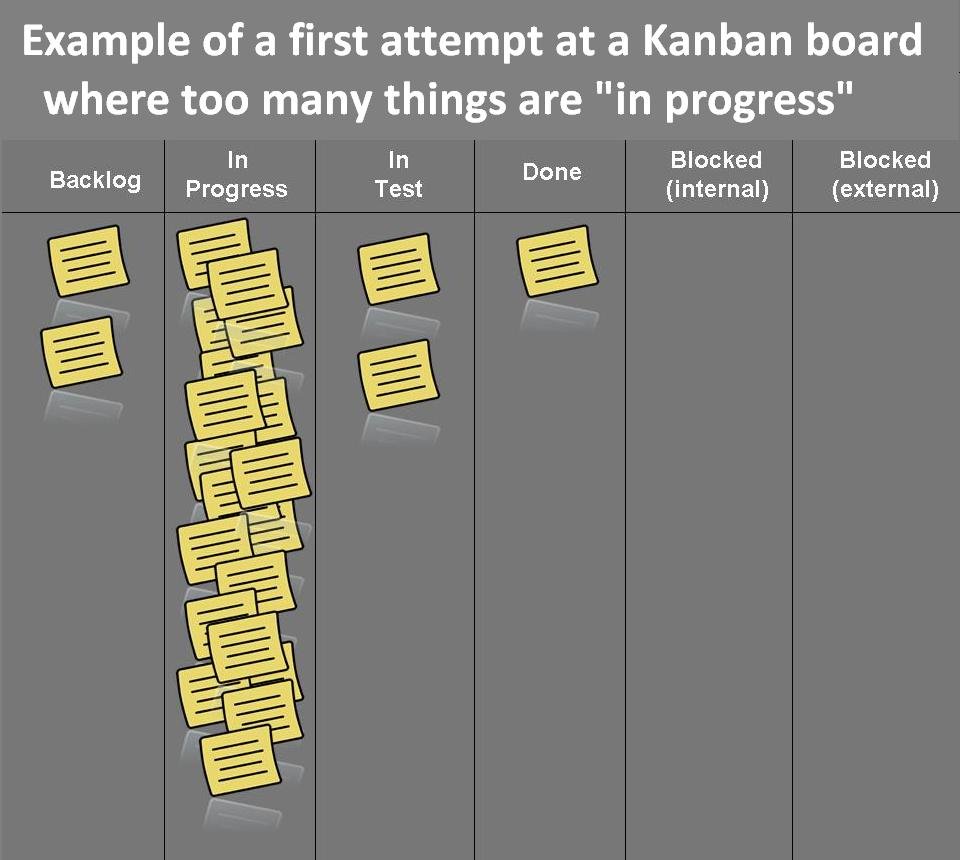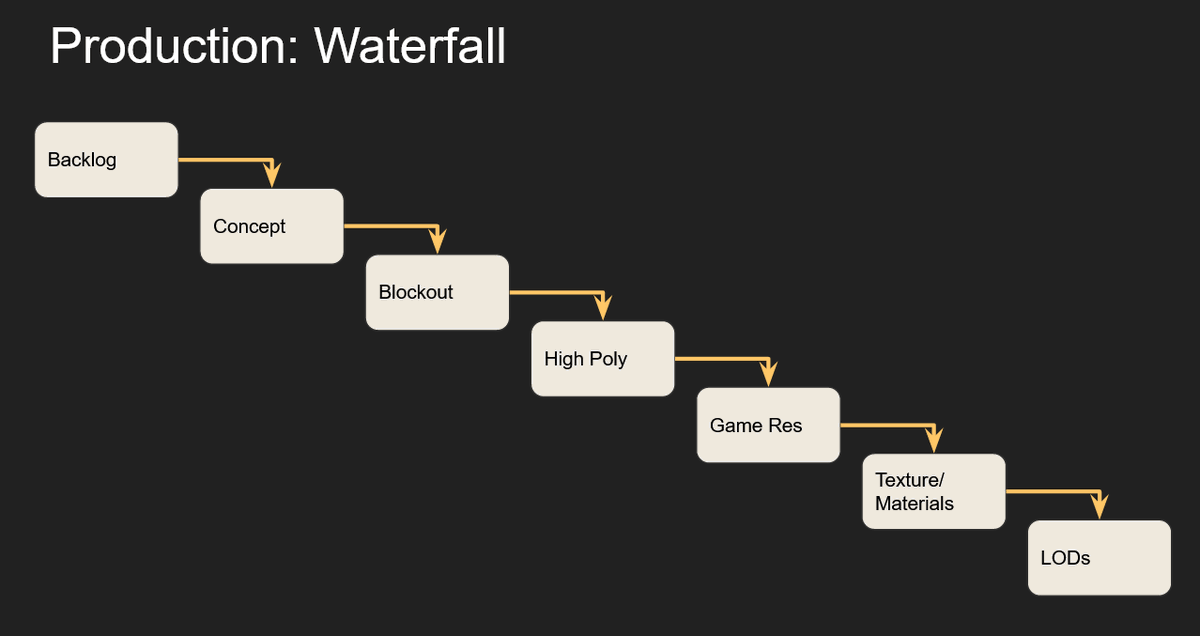I see a lot of advice from producers to aspiring folks that boils down to "Listen to people! Emotional Intelligence! etc. etc"
It& #39;s not wrong, but it& #39;s also not actionable. You can& #39;t get a job by listening harder. So here is a thread with some actionable hard & soft skills.
It& #39;s not wrong, but it& #39;s also not actionable. You can& #39;t get a job by listening harder. So here is a thread with some actionable hard & soft skills.
This is going to be very stream of consciousness, and I& #39;ll probably just keep adding to it as I think of things and when I have time.
Getting estimations out of hesitant creators!
It& #39;s hard to estimate tasks. Really hard! A fast way to do this without a lot of conflict is the tshirt size method.
Ask if it is a S, M, L, or XL tasks. Pre-assign estimates to these designations. S = 1 day. L = 2 weeks. etc.
1/3
It& #39;s hard to estimate tasks. Really hard! A fast way to do this without a lot of conflict is the tshirt size method.
Ask if it is a S, M, L, or XL tasks. Pre-assign estimates to these designations. S = 1 day. L = 2 weeks. etc.
1/3
Repeat the task and estimate back to the creator:
"So making the waffle prop is a Medium task so it will take 3 days."
Then listen to what they say afterwards. Many times the response is something like:
"Well it& #39;s a little harder. More like 4 days"
Boom! Good estimate!
2/3
"So making the waffle prop is a Medium task so it will take 3 days."
Then listen to what they say afterwards. Many times the response is something like:
"Well it& #39;s a little harder. More like 4 days"
Boom! Good estimate!
2/3
It& #39;s hard to estimate something without a point of reference. Providing an anchor estimate simplifies the calculations.
It& #39;s also feels a lot safer to correct something that is wrong. Content creators should spend as much brain power as possible on making cool stuff!
3/3
It& #39;s also feels a lot safer to correct something that is wrong. Content creators should spend as much brain power as possible on making cool stuff!
3/3
Learning project management:
Google these and take it all with a BIG grain of salt because every studio uses a weird Frankenstein version of all of them. (it& #39;s still good to know the core principles)
Agile
Scrum
Kanban
Waterfall
1/??
Google these and take it all with a BIG grain of salt because every studio uses a weird Frankenstein version of all of them. (it& #39;s still good to know the core principles)
Agile
Scrum
Kanban
Waterfall
1/??
Ok. Agile.
Before I joined the games industry, people apparently tried to predict everything? Even fun? Fun is hard to estimate. Asking a designer to estimate how long it will take them to "make combat fun" is a good way to get scowls in the kitchen.
2/??
Before I joined the games industry, people apparently tried to predict everything? Even fun? Fun is hard to estimate. Asking a designer to estimate how long it will take them to "make combat fun" is a good way to get scowls in the kitchen.
2/??
But you still need to predict how things are going to go! So we have iteration. We timebox our efforts to make something. We do the things we said we were going to do. At the end we figure out if it is good or not. If it doesn& #39;t hit the mark we iterate again.
3/??
3/??
This is, of course, a very simplified version. Make sure you understand what agile really means. The Agile Manifesto has a very silly name, but it is a good core philosophy for software development. (it is not appropriate for all game content)
4/4 (for now...)
4/4 (for now...)
Scrum methodology:
Scrum is basically a rule set applied to agile. It introduced some good stuff. Most places say they use it, but what they really mean is that they use sprints, backlogs, and stand-up meetings. If you know what those are, you& #39;re fine.
Scrum is basically a rule set applied to agile. It introduced some good stuff. Most places say they use it, but what they really mean is that they use sprints, backlogs, and stand-up meetings. If you know what those are, you& #39;re fine.
While we are on the subject, STAND UP MEETINGS SHOULD BE SHORT!
Everyone says what they& #39;re doing and you get the hell out. Your job is to stop monologuing and remind people to have back and forth discussions afterwards. It is not easy.
These are also for the team, not the boss.
Everyone says what they& #39;re doing and you get the hell out. Your job is to stop monologuing and remind people to have back and forth discussions afterwards. It is not easy.
These are also for the team, not the boss.
SCRUM Certification:
I have mixed feelings. I have it. I do think it helped me stand out when I was trying to find a job early on. You can also get the same info for free online. Literally no one has ever cared that I have this after I got past the recruiter. Soooo YMMV.
I have mixed feelings. I have it. I do think it helped me stand out when I was trying to find a job early on. You can also get the same info for free online. Literally no one has ever cared that I have this after I got past the recruiter. Soooo YMMV.
Kanban!
I genuinely love Kanban. It& #39;s a just-in-time methodology that is super good at exposing bottlenecks in your process. The Imperial Garden in Tokyo is usually the preferred example and I love it. STORY TIME!
1/??
I genuinely love Kanban. It& #39;s a just-in-time methodology that is super good at exposing bottlenecks in your process. The Imperial Garden in Tokyo is usually the preferred example and I love it. STORY TIME!
1/??
So the Imperial Gardens are getting overcrowded. It& #39;s hard to tell how many people (tasks) are in the garden (in progress) at any given time. So they devised a system where each person in the queue (backlog) would be given a ticket when they entered.
Cont...
2/??
Cont...
2/??
When the visitor exit the garden (task is completed) a runner takes their ticket and returns it to the queue allowing another person (task) to enter (start in progress). How freaking elegant is that!?!
3/??
3/??
I used this once when I had a lead who wanted to approve every single thing done by a very fast team of creators. They were always waiting for approvals. I made a Kanban board which showed tasks just piling up and blocking the team. Once the problem was visible, we solved it.
Here& #39;s the caveat. Most dev teams use Kanban boards just as a visual way to see what tasks are in progress. That is totally fine and still very useful. This is most likely what people will mean when they say Kanban.
There& #39;s a lot more to this and I suggest further research
5/5
There& #39;s a lot more to this and I suggest further research
5/5

 Read on Twitter
Read on Twitter




